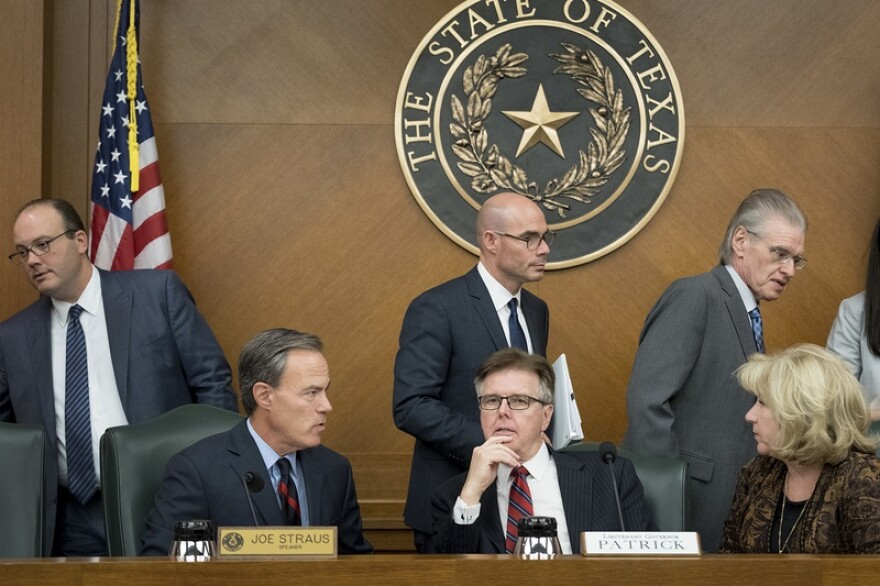After months of private squabbling and public threats of a legislative overtime session, the Texas House and Senate finally compromised to unveil a joint budget late Saturday.
Lawmakers, scrounging for cash in a tight-fisted legislative session, agreed to dip into the state’s savings account and to make use of an accounting trick using funds set aside last session for highway projects.
“We have reached a consensus on what I believe is a responsible, compassionate and smart budget for the people of Texas,” said state Sen. Jane Nelson, R-Flower Mound and the upper chamber’s top budget writer, at a committee hearing that lasted late into Saturday night.
“This has been a laborious process, I have to say,” said state Rep. John Zerwas, a Republican from Richmond and Nelson’s counterpart on the House Appropriations Committee. He called the budget “fiscally conservative” during “a time when it’s a little bit more lean.”
Budget documents indicated around $1 billion would come from the state’s Rainy Day Fund, a $10 billion savings account available to shore up the budget in difficult years. That money would pay for priorities such as repairs to the state’s aging mental health hospitals and bulletproof vests for police officers.
Nearly $2 billion more would come from an accounting trick related to transportation funding approved in 2015. The proposed budget would delay a payment to the state highway fund in order to free up that funding for other needs in the current two-year budget. The House had previously been critical of the possibility.
Though lawmakers were creative in tapping alternative money sources to avoid steep cuts this budget cycle, some high-dollar expenditures, notably Medicaid, the federal-state health insurance program for the poor and disabled, were not fully funded. That means lawmakers will almost certainly need to address those underfunded parts of the budget in 2019 — their next legislative session — in the form of a supplemental budget.
Lawmakers opted against a $1 billion cut from state funds to Medicaid. That proposal from the Texas House earlier in the session had worried advocates for the poor that services could be jeopardized.
On another high-profile issue, budget writers appeared to avoid a major overhaul of state funding for higher education — at least for now. The Senate had pushed for the elimination of a budgeting tactic known as a special item, through which universities and colleges get dollars for specific projects allocated outside the standard funding formulas. The House opposed the elimination, saying it was too drastic of a move to take without further study.
In the end, the conference committee decided to do just that — study it further. Though the preservation of special item funding will come as a relief to university officials, the schools will still feel a pinch in overall state funds.




